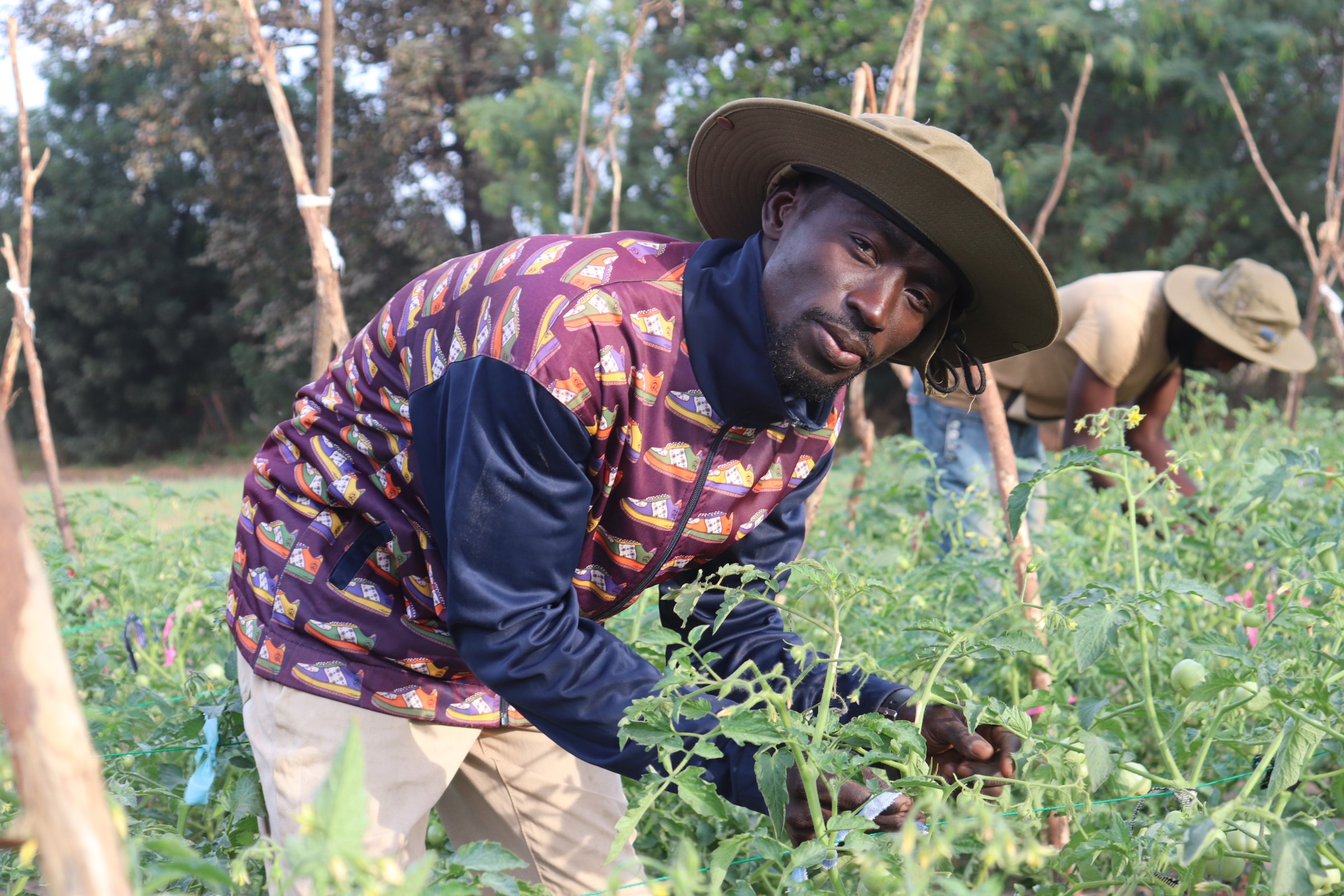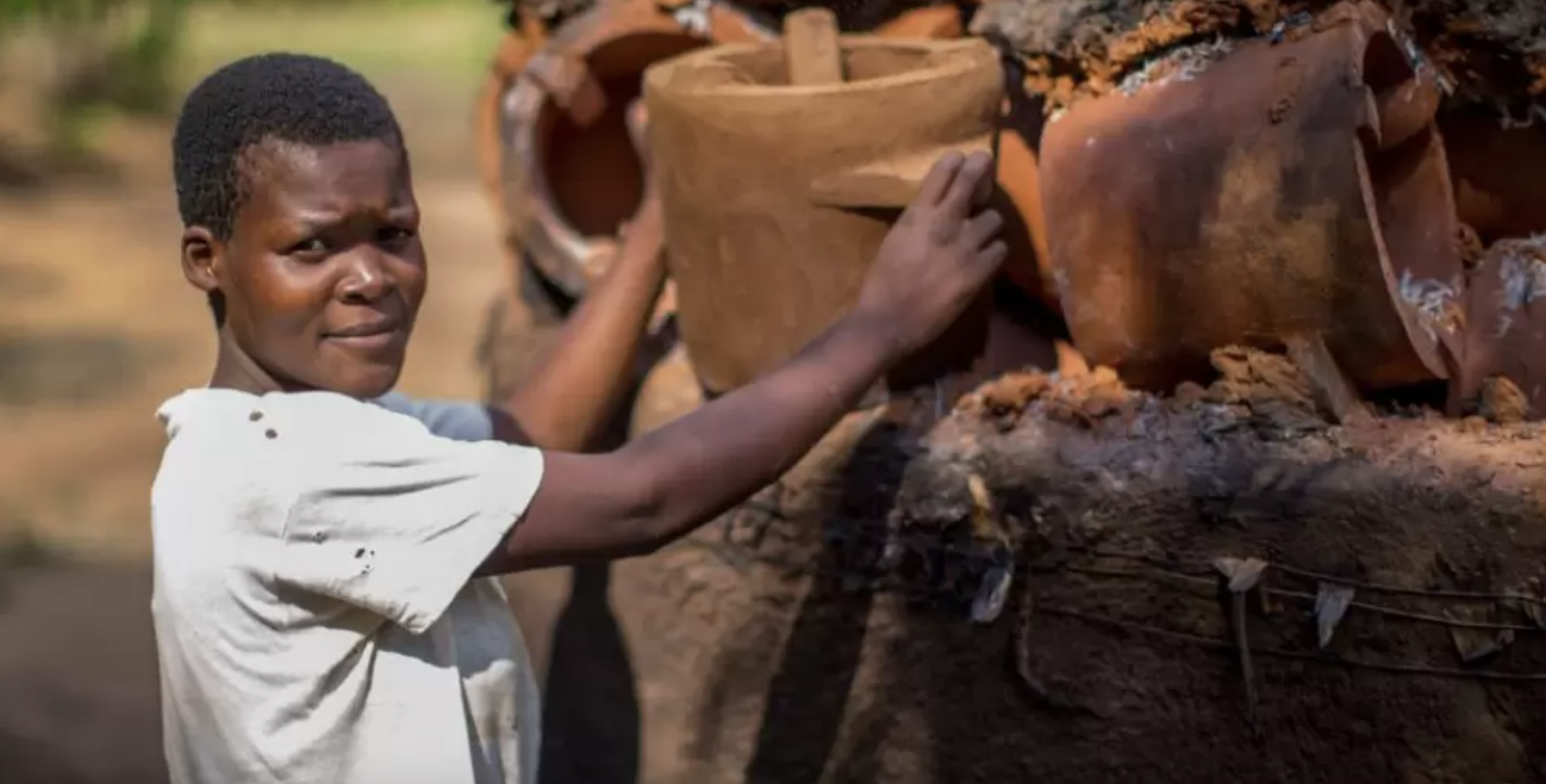As part of a wider project to increase Irish potato production in Mozambique, we’ve been working with inmates at Tinonganine Open Prison. This forward-looking collaboration has been a rewarding venture, both for inmates as they transition back into the community, and the community itself.
Inmates at Tinonganine Open Prison can use mobile phones and spend most of their time outside their cells.
Tinonganine, situated in Maputo Province, is one of the semi-open prisons established by the National Penitentiary Service in Mozambique. They aim to combine prison food production with the transfer of useful skills to inmates and ease their transition back into society.
For inmates who have already completed a third to half of their sentence, the open prisons reward good behaviour with an opportunity to learn skills in agricultural production and move from a locked up to a semi-open regime.
António Chissano takes care of the economic activities area and directs Tinonganine Open Prison.
Prison director Atanásio Chissano, told us that “sometimes it is difficult to make a community understand that although they are inmates, they are also people who need support to be reintegrated into society and that they are willing to do it in a peaceful way”.
At Tinonganine, potato growers are able to interact with community around them, giving them a better status after being released from prison. As well as providing seeds and fertilisers, UP gives direct technical support and delivers training on how to identify diseases and apply appropriate pesticides.
Improving nutrition and opportunity
Potatoes are not usually eaten in prisons, but as a result of the project, almost 1 tonne of potatoes was produced in 2017 – half of which were eaten in the open prison and the other half of which were shared with other prisons in the province.
One of the inmates tells us that he is keen to use the skills he has learned in his job search on his imminent release.
““This is the first time we have had the opportunity to produce potatoes. For me it is very good because potatoes are tastier than flour or rice, but also because they sell well. I can get out of here and grow it in my own field.””
Most importantly, the project enables inmates to develop skills, expertise and self-esteem – all of which are essential for a positive reintegration in society and within family households after they leave prison. It also increases employment opportunities and reduces risks of getting back into crime.
One of the inmates said, “This is the first time we have had the opportunity to produce potatoes. For me it is very good because potatoes are tastier than flour or rice, but also because they sell well. I can get out of here and grow it in my own field.”
Food for the future
The Irish potato is highly nutritious: rich in fibre and vitamin C (which increases iron absorption).
In 2014, the association at Tinonganine joined the 14 other smallholder associations within the project, which has a particular focus on women and vulnerable groups. UP is supporting members with start-up equipment, plus all of the training essential to growing and selling the nutritious tubers.
In Mozambique where 70% of the population depends on climate-sensitive agricultural production for their food and livelihoods, the Irish potato is increasingly being seen the food of the future. It requires much less water than other major food sources and has a high nutritional content.
The work at Tinoganine is also proving invaluable in supporting the conservation of the Irish potato. By building a barn to store seeds and nominating ‘seed multipliers’ who are able to identify quality, they are ensuring other local farmers have access to high quality, uncontaminated seed.
Our work in Tinonganine Open Prison took is part of our Improving food security, nutrition, income and livelihoods for smallholder farmers in Mozambique project. Funded by the Australian Government through the Australian NGO Cooperation Program (ANCP) and our Australian NGO partner Action on Poverty (AOP), this project focuses on increasing potato productivity and creating sustainable access to locally produced and disease-free potatoes. It also increases income generation through value chain and business development and improves linkages between the private, public and research sectors.















